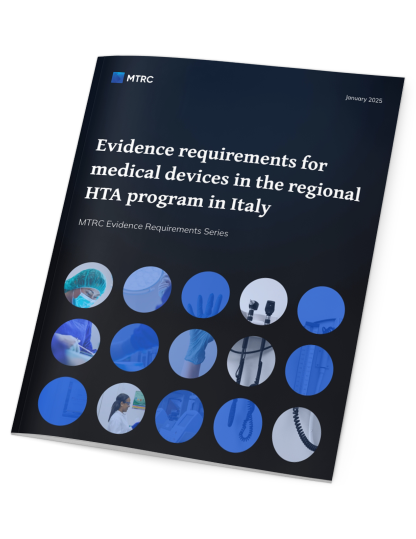
The Commission for the Assessment of Health Technologies and Investments (C-HTA) in Tuscany, Italy, provides final recommendations to regional decision-makers regarding the procurement of new technologies. These recommendations are based on evaluations conducted by the Operating Center (CO) in Tuscany. Health Technology Assessment (HTA) for medical devices typically applies only to the first-time acquisition of high-risk, novel devices (e.g., Class IIb, III, and active implants). However, since June 2022, Tuscan authorities have mandated that innovative medical devices undergo HTA prior to procurement.
A device is deemed innovative if it meets at least one of the following criteria:
- Level of innovation
- Level of unmet need
- Added clinical value compared to the current standard of care
- Significant organizational improvement and increased efficiency
Five types of HTA documents are produce - Rapid Review, Mini HTA, Rapid HTA, Full HTA, and Adapted HTA - but, in practice, only Rapid HTA reports are utilized. If an HTA report delivers a favorable opinion, the new medical device is generally introduced into the healthcare system and purchased by providers. The assessment focuses on the relevance and validity of evidence, with cost savings as a key consideration.
In this White Paper, we reviewed five rapid HTA reports from the Tuscany region to highlight the evidence requirements of the HTA program.
Request White Paper
Request analytical White Paper and advance your understanding of European market access for medical devices
